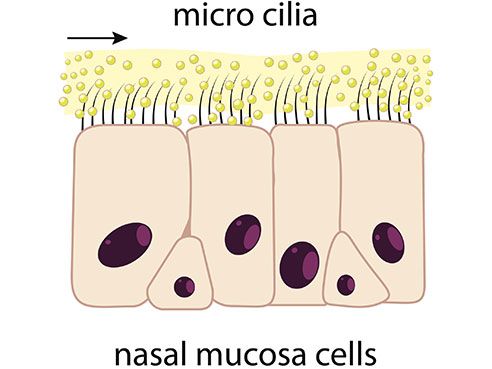 The University of Alabama at Birmingham has opened a clinic treating adults with primary ciliary dyskinesia, or PCD. A similar new clinic for children with PCD was opened at Children’s of Alabama in November 2015.
The University of Alabama at Birmingham has opened a clinic treating adults with primary ciliary dyskinesia, or PCD. A similar new clinic for children with PCD was opened at Children’s of Alabama in November 2015.
PCD is an inherited disorder of moving cilia — the structures lining the airways, ears and sinuses. Moving cilia are needed to keep the lungs, sinuses and ears free of debris that can cause infection and disease. Poor-functioning cilia in PCD patients can lead to chronic, recurring infections and permanent damage.
It is estimated up to 25,000 Americans and 400,000 people worldwide suffer from PCD. There is no identified at-risk population in terms of race, ethnicity, heritage or gender. However, there appears to be a higher incidence of PCD in cultures where marriage between close relatives is allowed or where the society is isolated by geographic barriers.
The UAB and Children’s of Alabama clinics are the only clinics in the region to provide access to both pediatric and adult care. Marty Solomon, M.D., oversees the UAB adult clinic, while Wynton Hoover, M.D., oversees the pediatric clinic. The clinic is approved as a clinical care center by the Minneapolis-based Primary Ciliary Dyskinesia Foundation.